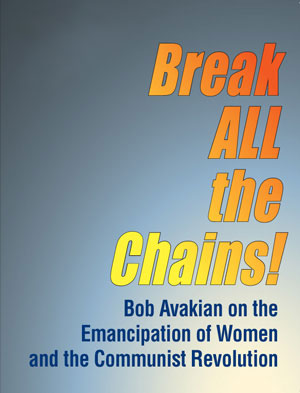Response to FEM Magazine:
Trying to Censor Revolutionaries in Safe Spaces of Empire
By Tala Deloria, Revolution Club, LA
| Revolution Newspaper | revcom.us
After The Word on Wednesdays (an open mic poetry venue at UCLA) censored a revolutionary’s poem, we challenged the people attending to a debate about where the framework of intersectionality leads. They did not come to debate, but a contributor to FEM magazine wrote an article about the incident. This is a response to help bring clarity to the contention.
What we have here is two opposing models in contention. One aiming to sweep away oppression and exploitation throughout the planet, and the other aiming to curate the positions of oppressed people within this system—dictating who owns what oppression, and what stories can be told by whom—all of which leaves the world as it is.
The problem, according to this contributor, was that revolutionaries “colonized” their “safe space” by reading a poem dealing with global violence against women, and that a white man should not have read that poem because he has never experienced the trauma it detailed.
If you apply this criterion, even queer women of color living in imperialist countries couldn’t have read the poem! By this logic, it would’ve had to have 23 authors to be legitimate and politically correct. This is farcical and worse, as it can only lead to the stories and experiences of people in oppressed nations going untold. How convenient it is for this system when we can only speak from our own experience, never stepping out of our lanes to empathize with those on whose backs we are living, and instead censoring the telling of their stories in the name of preserving a safe space. A “safe space” which, by the way, you are able to carve out BECAUSE of the imperialist position of the U.S. in the world; a “safe space” which in the face of this incident, you enforced by calling the repressive force of the state—the pigs (UCPD)!
Further, if you think what happened at The Word was “colonization,” please go study what King Leopold and friends did to the Congolese people, what Cortez did throughout Latin America, what the British did in India. Your comparison would almost be funny if it wasn’t so insulting.
A white man empathizing with and reading a poem about violence against women is not violence just because it triggered your narrow worldview and made you uncomfortable. Comparing THIS to what the U.S. does all over the world—dropping drone bombs on babies, using rape as a tool of war, plundering the people and the planet in its search for riches and power—trivializes ACTUAL colonial and imperialist violence. The only way you can consider this a legitimate comparison is if you’re stewing in American chauvinism. So please, pick yourself up out of that BS and get real!
This isn’t to say artists shouldn’t have spaces to express themselves, but let’s set different standards here, and ironically, applying your criteria would mean the end of art! Think about it.
If we really want to end oppression, we need EVERYONE to speak out about the experiences of the people of the world. We must welcome everyone who wants to join the fight because that’s what it’s going to take to get free—uniting everyone who can be united in a revolutionary movement to overthrow the system that enforces relations of masters and slaves, exploiters and exploited, to get beyond this dynamic once and for all.
The second thread of the argument is that: “Only a white man’s worldview could select class and imperialism as the only relevant axes of oppression; only a white man could fail to understand that race, gender, and sexuality are the raw material for our capitalist and militaristic institutions.”
Underlying the distortions peddled in this sentence is a dismissal of a scientific understanding of the problem as the worldview of a “white man,” which you see as the main enemy.
Reality is not a compilation of narratives, some of which have dominance over others. We live in a global system of capitalism-imperialism which has integrated and made indispensable pre-existing social antagonisms—white supremacy, patriarchy, etc. This is true not only with regards to the divide between oppressed nations and imperialist countries, but also the oppression this system carries out in this country—the genocidal trajectory of mass incarceration and police terror against Black people, the demonization and persecution and incarceration of immigrants, and the list goes on.
We are in the “school of Bob Avakian” because as part of his breakthrough in human thought, he has brought forward a scientific understanding of the relationship between these social antagonisms and the underlying mode of production. It’s not that everything boils down to class as an identity or a position in the distribution of wealth in society—it’s that capitalism-imperialism with its underlying mode of production has the violent enforcement of oppressive inequality built into its operation, and it will continue to regenerate social antagonisms and oppressive ideas on a world scale and prevent you from fundamentally abolishing them unless and until we overthrow the system.
This understanding is not something you can come to by proceeding solely from the experiences or “narratives” of oppressed peoples. As our polemic on intersectionality states, “Without science and a scientific approach to get at the root causes, what is needed to uproot this and set up a radically different system and society, ALL resistance and struggles are channeled back into the very same system that is the source of this oppression in the first place.”
Trauma is real, and the stories and experiences of oppressed people should be and must be heard IN THE CONTEXT OF fighting to make a revolution and bringing into being a radically new state wherein people have the right to direct society toward the eventual abolition of classes and all the antagonistic divisions between human beings throughout the world, not to “get mine” or get atop a “woke” world!
This brings me to the paltry vision of “revolution” put forward in the article: “I think [my vision of revolution] looks like queer people of color sharing poetry on Wednesday nights. Many small, beautiful revolutions.”
Though I love poetry, as any real communist does, to call poetry readings by queer people of color revolution amounts to nothing but wielding your American privilege to keep the world as it is. You carve out a safe space within, and on the basis of, empire and you think the most radical thing we can do is to “assert [our] lived experiences as worthy of attention and validation in public discourse.” This is just a sad worldview with horizons so limited that they prevent you from seeing beyond this system.
There’s a way out of this madness. This is what we were bringing into The Word that day. A strategy for how we can make an actual revolution, which means an OVERTHROW of this system, meeting and defeating their forces of repression (the military, police, etc.) when the time is right. We are preparing now for that time. Because of the work Avakian has done, we have a strategy to go up against this imperialist beast with a real shot to win, and we have a constitution which sets a foundation for a society on the road to emancipating all of humanity. This is what anyone who really wants to get free needs to raise their sights to engage.
I myself, am honored to be in the school of Bob Avakian.
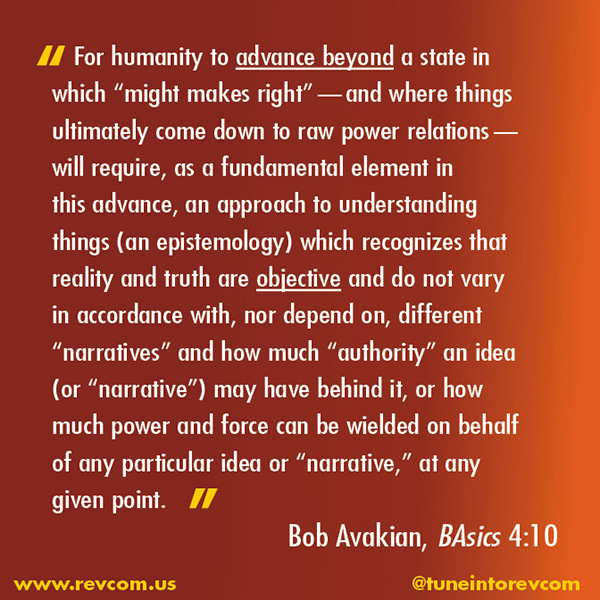
Epistemology and Morality, Objective Truth and Relativist Nonsense
An excerpt from:
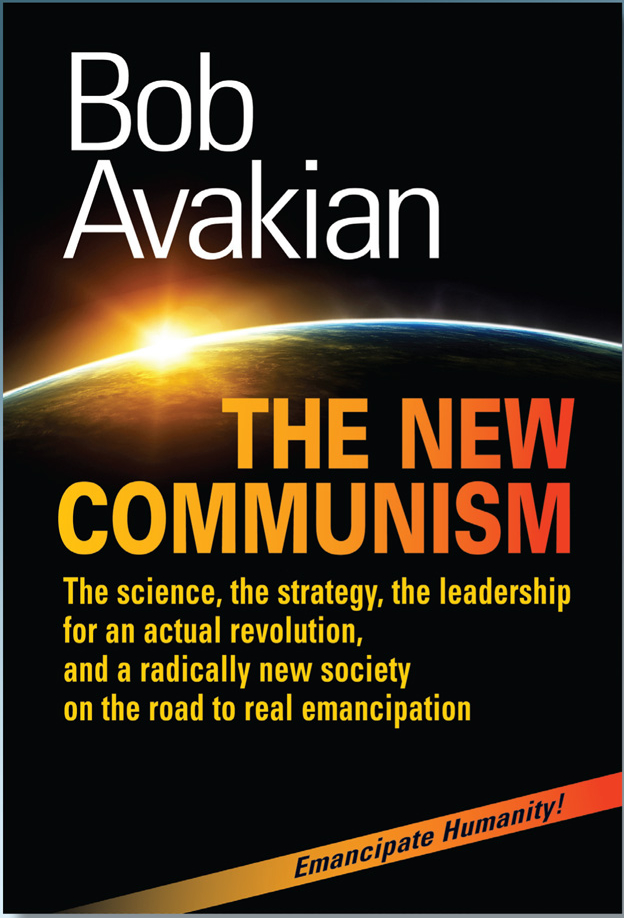
Read and download the PDF of the book, order the book, see more excerpts
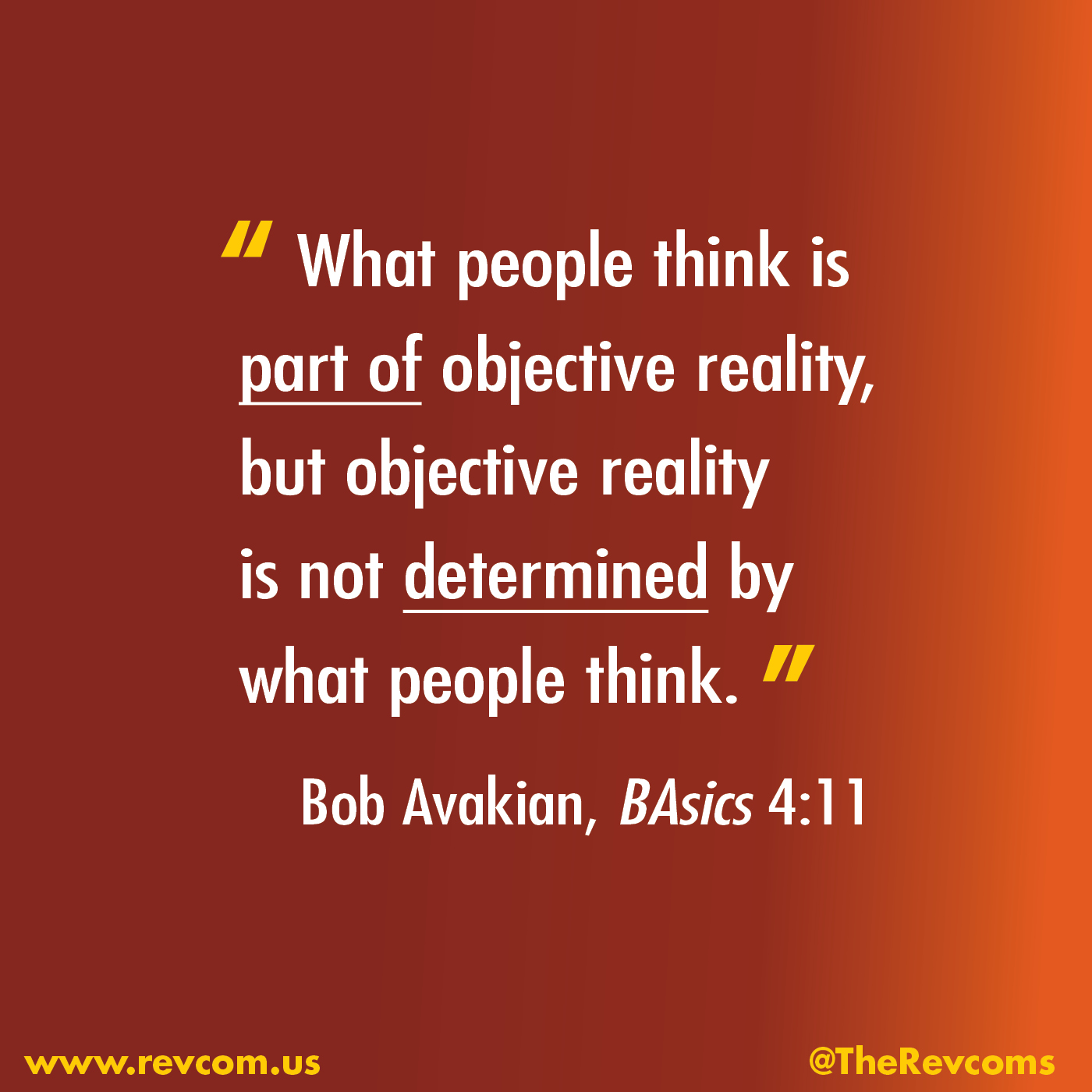
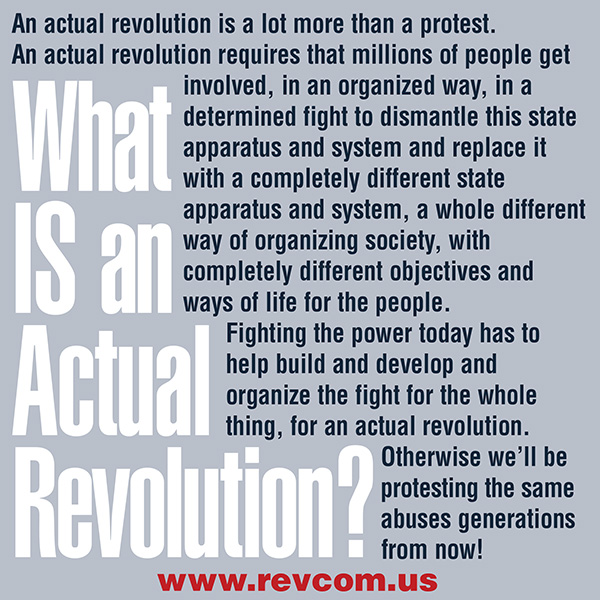
Get a free email subscription to revcom.us:


